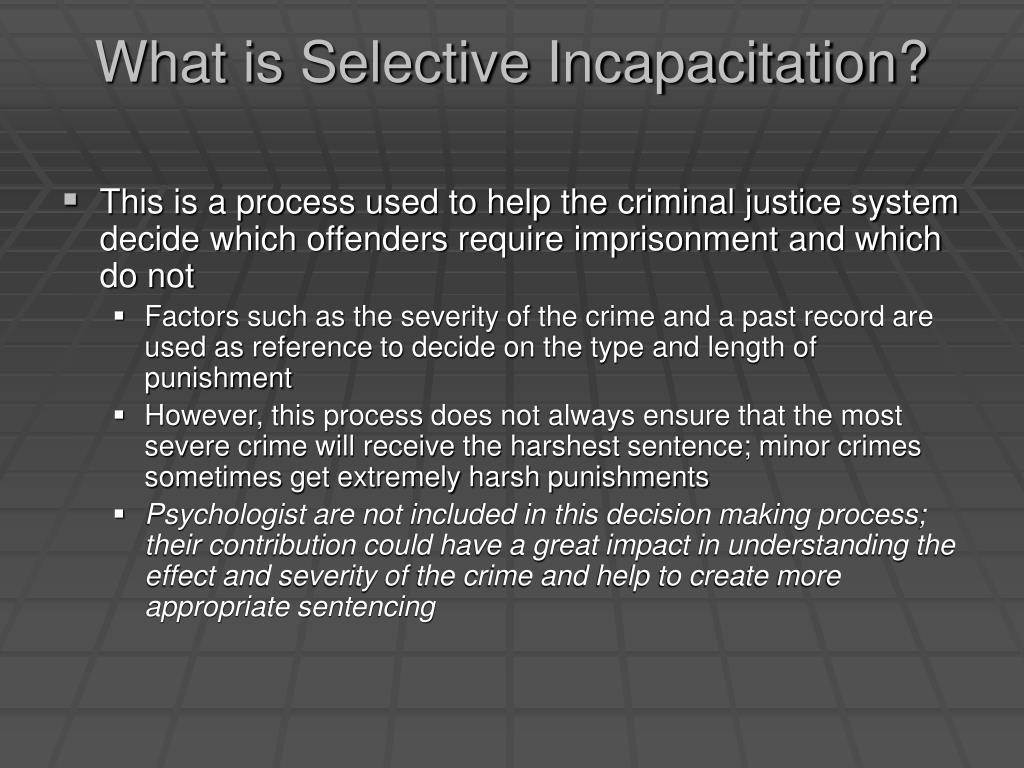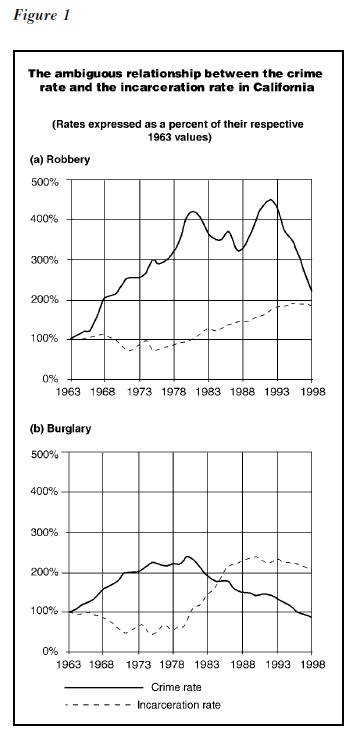Selective incapacitation is a criminal justice policy that aims to reduce crime by targeting and incapacitating high-risk individuals who are likely to reoffend. The goal of selective incapacitation is to reduce the overall crime rate by removing the most active and dangerous offenders from society, either through imprisonment or other forms of incapacitation such as electronic monitoring.
One approach to selective incapacitation is to identify and target offenders who are deemed to be at high risk for recidivism, based on factors such as prior criminal history, age, and the severity of their current offense. These high-risk individuals may be subjected to more intensive supervision or more severe penalties in an effort to reduce the likelihood of future offenses.
Another approach to selective incapacitation is to focus on specific types of crimes or offenders that are believed to have the greatest impact on the overall crime rate. For example, targeting repeat drunk drivers or violent offenders may be seen as an effective way to reduce the overall number of accidents or violent incidents in a community.
There are several arguments in favor of selective incapacitation as a means of reducing crime. One argument is that it can be more cost-effective than other approaches, such as building more prisons or increasing police presence. By targeting high-risk individuals, resources can be focused on those who are most likely to reoffend, rather than being spread thinly across the entire population.
Another argument in favor of selective incapacitation is that it can be more effective at reducing crime than other approaches. By removing the most active and dangerous offenders from society, the overall crime rate may be reduced. This is because these individuals are believed to be responsible for a disproportionate share of crime, and their removal could have a significant impact on the overall crime rate.
However, there are also arguments against selective incapacitation. One concern is that it may disproportionately affect certain groups, such as racial or ethnic minorities, who may be more likely to be targeted due to biases in the criminal justice system. Another concern is that it may not be effective at reducing crime in the long term, as it does not address the underlying causes of crime and may simply shift crime to other areas or groups.
In conclusion, selective incapacitation is a criminal justice policy that aims to reduce crime by targeting and incapacitating high-risk individuals who are likely to reoffend. While it may have some benefits in terms of cost-effectiveness and crime reduction, it also has potential drawbacks and may disproportionately affect certain groups. As with any policy, it is important to carefully consider the potential impacts and trade-offs before implementing selective incapacitation.





